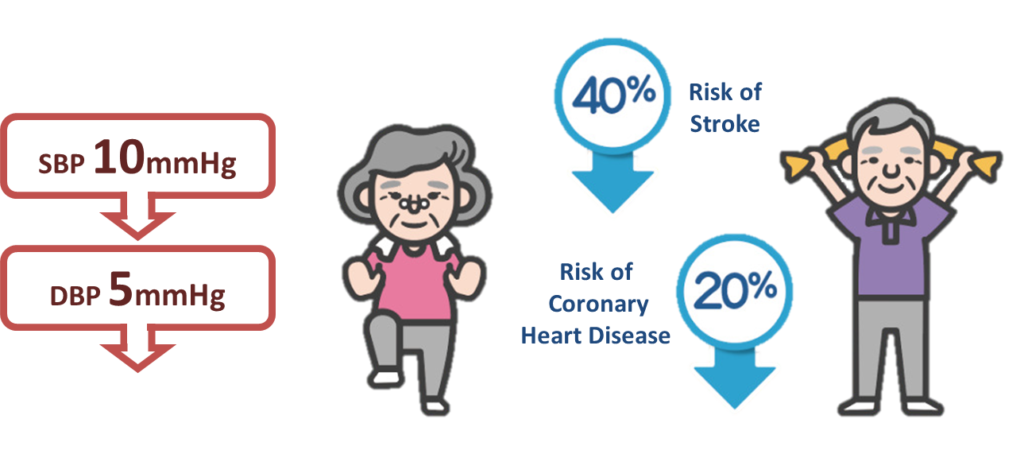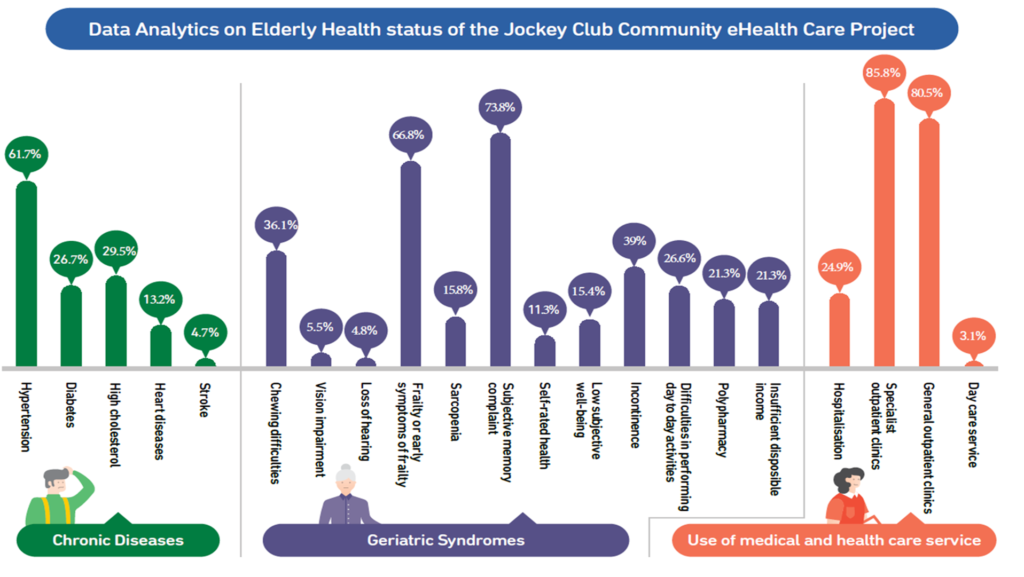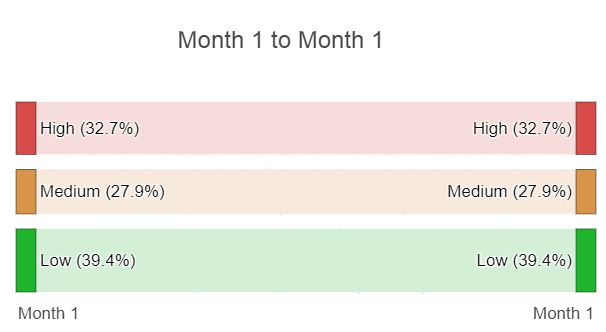About us
Project Impact
Commenced since November 2016, the JC eHealth Project has served more than 10,000 elderly participants through different health promotion programmes, and an annual survey on their social and health conditions. Among them, some 5,500 participants with chronic conditions such as hypertension and diabetes, are regularly monitoring their own health, supported by a nursing team through telecare and onsite consultation service. The Project has progressed well and the major achievements are summarised as follows
Positive impact of telecare and nursing support
Under the JC eHealth Project, an eHealth station was set up at each of the 80 participating centres. The station was equipped with blood pressure meter, blood glucose meter, eight scale and tablet. At present, more than 5,500 elderly participants are conducting regular measurement at the eHealth stations, and their health data is monitored by a distant nursing team operated by Senior Citizen Home Safety Association through real time telecommunication technology. The nurses would make caring phone calls to the participants if the readings are abnormal. They would also conduct face-to-face interview with the participants on a monthly basis. As at Oct 2019, the nurse team has made some 500,000 calls and conducted over 8,000 visits to elderly centres for the interviews.
The telecare programme has shown significant impact on empowering self-management and improving health conditions of the participants. As for hypertension control, the average incidence of out-of-range readings on blood pressure (n=1,685) have decreased from 4.3 times per month in the first month to 2.5 times in the 13th month. In parallel, more than 42% of participants with hypertension (n=1,042) have shown a reduction in systolic blood pressure with at least 10 mmHg, or a reduction in diastolic blood pressure with at least 5 mmHg in the 13th month. It means that their risks of coronary heart disease and stroke have been reduced by 22% and 41% respectively*. Please click here for a case illustration video on self-management empowerment.

Enhanced capacity of elderly centres in delivering health-related programmes
The JC eHealth Project has enhanced the elderly centres’ capacity to better detect the health needs of their members and provide support through organising health-related activities. More than 10,000 older people from the 80 participating centres have joined well-being survey, designed by the Institute of Ageing of CUHK. With data collected through tablets, the survey is a useful tool to understand typical health problems of the participants, such as medications, frailty, cognitive decline, self-rated health, etc. The survey results have facilitated the centres to plan and implement over 4,800 health and wellness activities for over 100,000 attendees. The overall health needs identified is demonstrated in Figure 1.

Figure 1 (n=7,356)
The centre-based group programmes have been effective in promoting participants’ physical and mental health, especially on self-rated health (increased by 18%), mental well-being (increased by 38%) and poly-pharmacy issues (decreased by 6%). The health improvement is closely associated with the behavioural change among the elderly participants. They have shown greater willingness to attend exercise classes (improved by 43%) and attend health-related classes/workshops (improved by 48%). Please click here for a video on the well-being survey and centre-based programmes.
Significant outcome on health patterns and innovation in health promotion
Through data analytics of the JC eHealth Project, it is noted that among the participants, 37 per cent could reduce their risk level of abnormal blood pressure in the 13th month, and 32 per cent could maintain their blood pressure at a relatively stable and low-risk level. The overall health needs identified is demonstrated in the chart below:

In addition, the project team has identified several conducive factors to the participants’ hospitalisation risks. According to the analysis, the following seven factors are statistically significant with hospitalisation (based on risk ratio)
- Hospitalisation history in last one year
- Use of drug
- CSSA recipient
- Frailty
- Sarcopenia
- Self-reported hypertension
- Age group
To find out more on the overall project impact, please click here for our project impact video.
* The correlations between control of blood pressure and coronary heart disease or stroke have been verified in different medical researches, including a meta-analysis study on 464,000 people which examines the quantitative efficacy of different categories of blood pressure in preventing coronary heart disease and stroke. The findings can be found in Law et al. (2009) Use of blood pressure lowering drugs in the prevention of cardiovascular disease: meta-analysis of 147 randomised trials in the context of expectations from prospective epidemiological studies.
